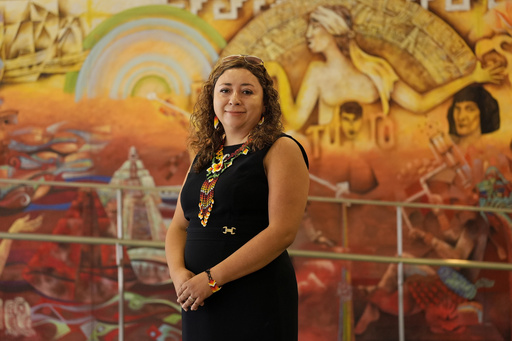Higher education advocates within the Latino community express optimism about a federal initiative aimed at supporting numerous local colleges and universities. These institutions, known as Hispanic-serving institutions (HSIs), play a crucial role in promoting educational and economic equality, according to the White House. President Joe Biden recently issued an executive order to enhance funding for HSIs and establish a board of advisors to support these institutions.
With Hispanic individuals constituting nearly three-quarters of the country’s population growth, education leaders emphasize the importance of promoting this new initiative to help Hispanic students close the gap with their peers from other backgrounds. Antonio R. Flores, president and CEO of the Hispanic Association of Colleges and Universities, views this development as significant for the nation’s future, especially considering the rapid growth of the Latino demographic in higher education enrollment.
President Biden’s order aims to bolster HSIs’ ability to offer high-quality education, leverage federal programs, and enhance the educational and economic prospects of their students. These institutions, numbering over 500 across the U.S. and Puerto Rico, annually serve more than 4.7 million students, many of whom come from low-income backgrounds and qualify for federal Pell grants.
While historically Black or Native American tribal colleges earn their designations based on their missions, any college can be designated as an HSI and receive federal support if at least a quarter of its student body is Latino. Some notable HSIs include the University of California at Riverside, California State University at San Bernardino, and the University of Texas at Austin.
HSIs address critical needs in widening the pathway for Latinos pursuing STEM fields, as emphasized by White House officials. The executive order is seen as a step towards better serving students at HSIs, which are often under-resourced and lack necessary infrastructure, akin to historically Black colleges and universities (HBCUs) and tribal colleges.
Anne-Marie Núñez, from the Natalicio Institute for Hispanic Student Success at the University of Texas, El Paso, underscores the importance of the executive order in advancing opportunities for HSI students and faculty. Melissa Camacho, a business administration student at the City College of San Francisco, points out the lack of resources for Hispanic students who are not native English speakers, stressing the need for improved support programs.
The executive order’s impact is expected to extend beyond HSIs, benefiting the nation as a whole. If effectively implemented, it could pave the way for enhanced career pathways and improved economic well-being for HSI students and faculty, contributing to societal advancement and equity.
